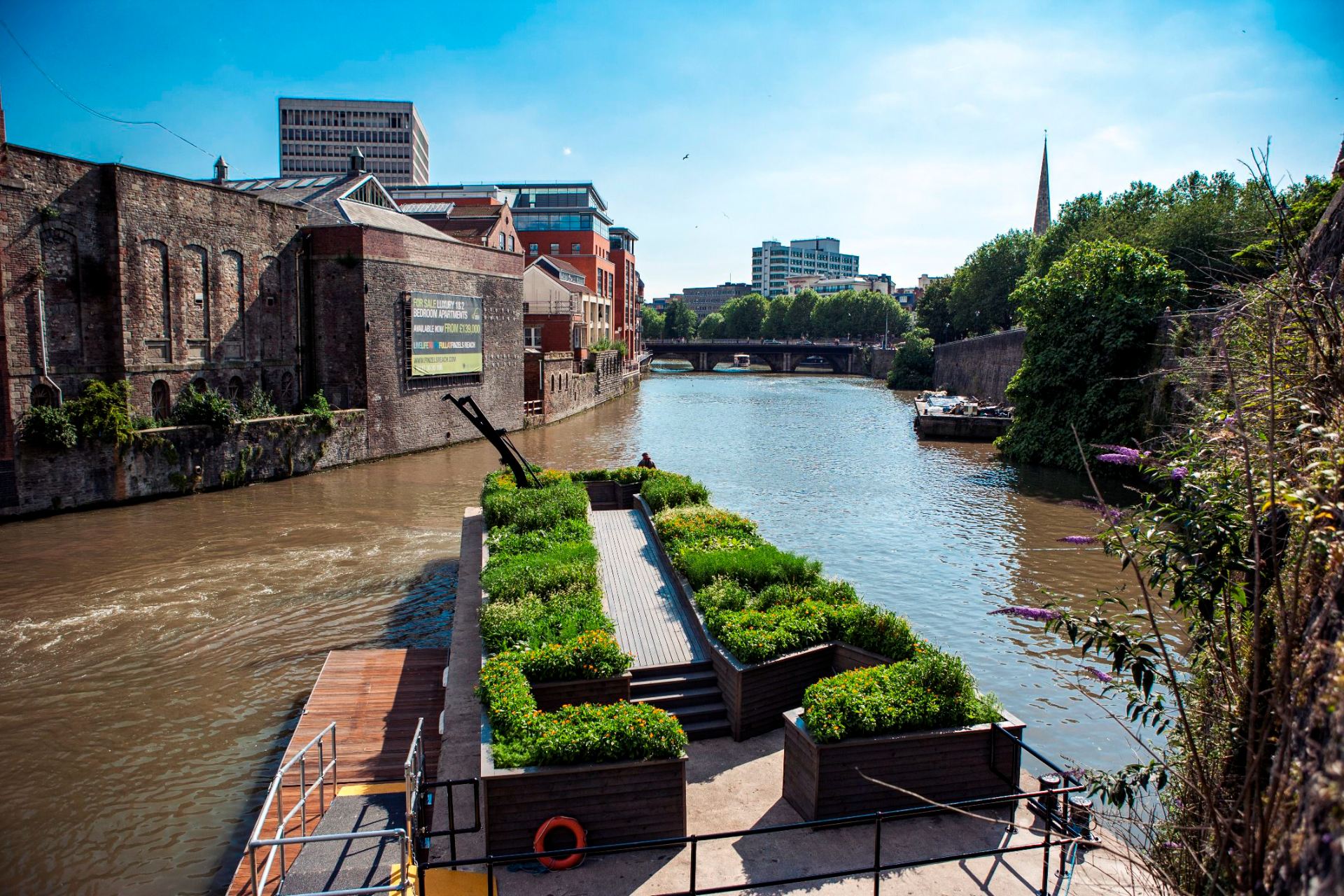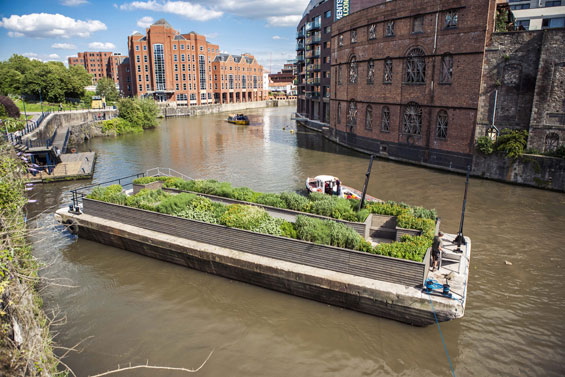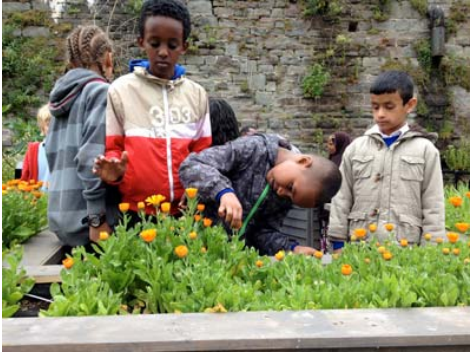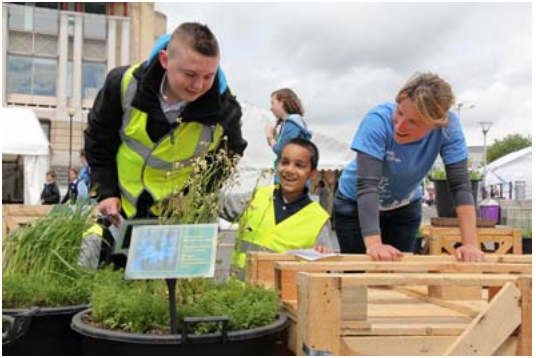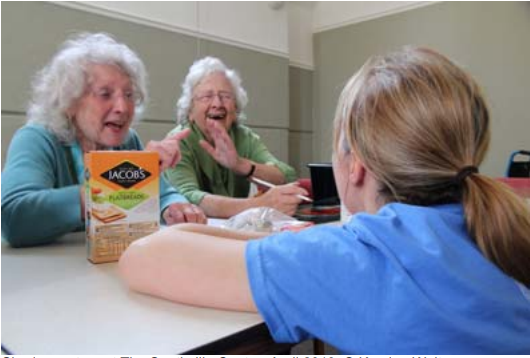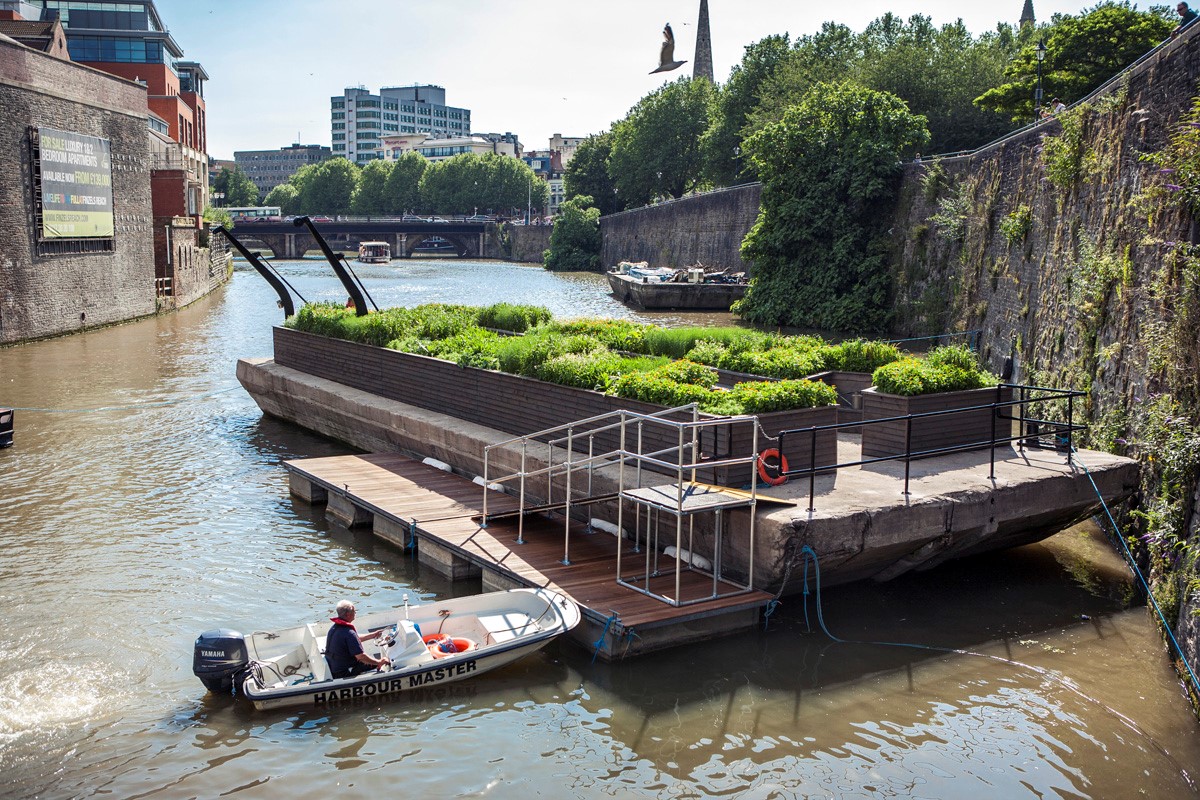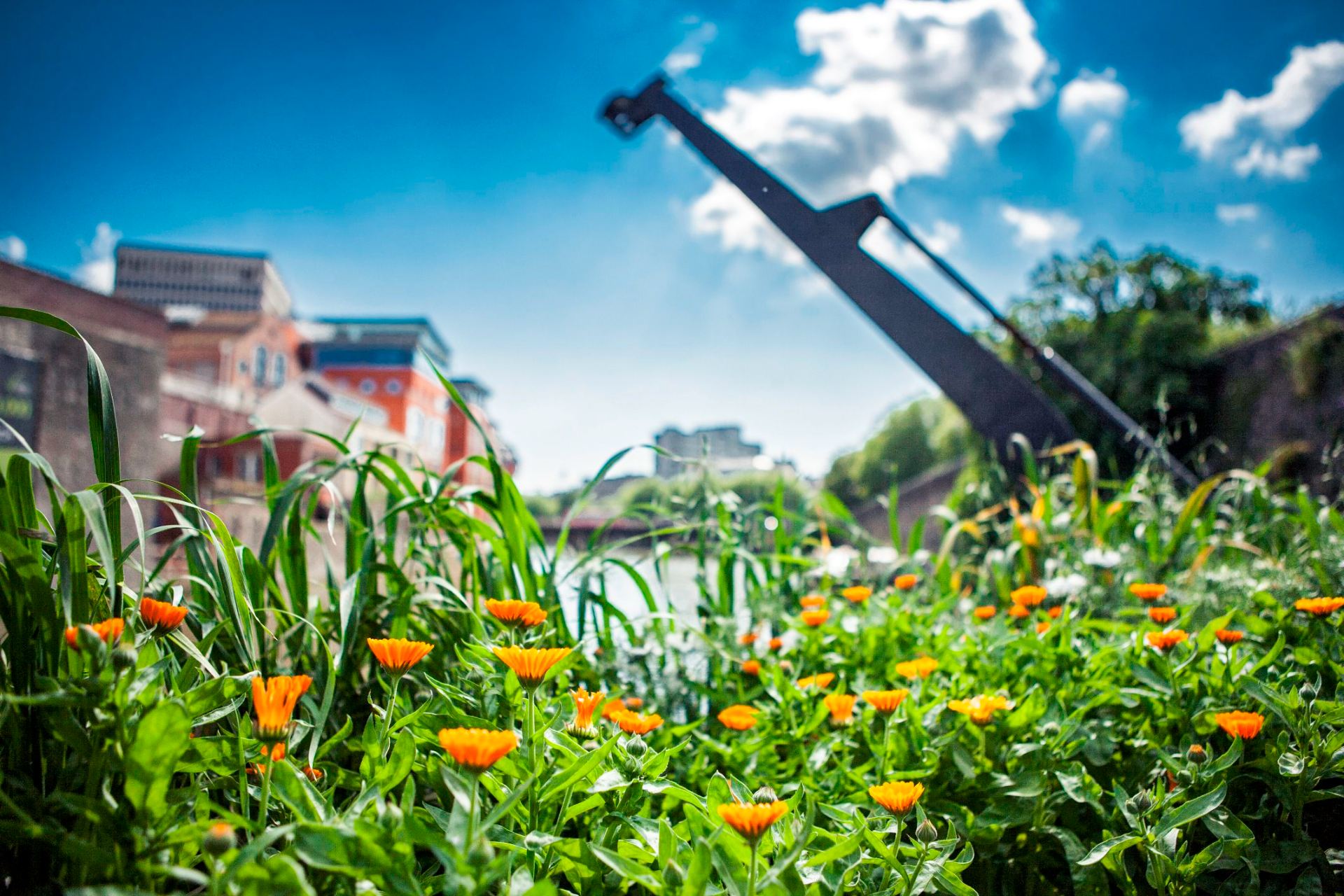Ballast flora are plants that have become part of the British landscape, having arrived as seeds in the ballast of ships.
Between 1680 and the early 1900’s ships entering the port of Bristol unloaded many tons of ballast along the river and the harbour.
This ballast often contained seeds from wherever the ship had sailed. Some of these seeds flourished and are still found growing around Bristol today.
Seeds of Change: A Floating Ballast Seed Garden was a floating garden located on the harbour in Bristol between 2012-2017; developed by the Brazilian artist Maria Thereza Alves. It was commissioned and produced by Bristol City Council as part of the London 2012 Festival in collaboration with Arnolfini and the University of Bristol Botanic Garden.
Seeds of Change is an ongoing investigation into ballast flora in the port cities of Europe. Utilising an old grain barge, Alvez created a ‘ballast seed garden’, populated with a selection of plants from around the world that symbolize a living history of Bristol’s trade and maritime past.
The Floating Ballast Seed Garden was designed to challenge our definitions of what constitutes our ‘native landscape’. It raises questions about the point at which species becomes ‘native’, and how we determine our sense of national identity and belonging.
The garden was designed by German designer Gitta Gschwendtner and was developed by Arnolfini with support from Bristol City Council and specialist advice from Nick Wray, curator of Bristol University’s Botanic Garden. Students from the Royal Horticultural Society courses at the Botanic Garden raised the young plants and helped plant the ballast seed garden display. The design of the barge offered the visitor an opportunity to view the ballast seed plants from various levels and perspectives.
The plants were selected from a list of species found growing on ballast seed dumps at British ports including Bristol. A more extensive range of Ballast Seed Garden plants are grown in a display at the University of Bristol Botanic Garden.
In 2012-13 during the first year of the barge being open to the public, University of Bristol led an engagement programme, Seeds of Change: Growing a living History of Bristol.
This innovative programme of creative workshops and garden building sessions, co -led by artists and academics, bought heritage to life through the medium of plants. With funding from the Heritage Lottery Fund it offered diverse experiences to a large cross section of Bristol’s residents – from listening in awe as a Venus Flytrap devours its prey to travelling on a boat for the very first time.
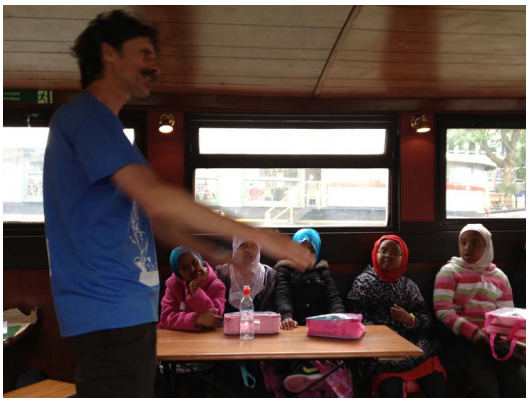
The project that we ran enabled me, as an educationalist, to introduce a whole new dimension to the children that I wouldn’t normally have covered in a standard Botanic Garden interpretation session. We were really able to take them to a different place and that’s something they will remember.
The project aimed to increase understanding of different heritages within Bristol’s primary schools and community groups and offered people the opportunity to share and celebrate these heritages with one another. It involved building relationships with 11 partner primary schools and 5 community groups. 28 student volunteers were recruited to support the programme, broadening their perspective on the city of Bristol and the people who live here.
An additional 10 primary schools and approximately 5000 members of the general public were given access to the project through the Seeds of Change tent during the Bristol Festival of Nature.
Maria Thereza Alvez
Maria Thereza Alves has recently exhibited in the Lyon Biennale, Guangzhou Maria Thereza Alves was born in Sao Paulo, Brazil in 1961. She researches social and cultural phenomena and was one of the co-founders of the Green Party in Brazil.
Alves focuses on concepts that question social circumstances; concerning what we think we know, who we think we are and to look instead at where and how we actually are at this time. She attended the Cooper Union School of Art in New York City and in 2006 she was awarded a DAAD scholarship (Deutscher Akademischer Austauschdients/German Academic Exchange Service).
Her work has been exhibited widely across Europe and North America. Recent exhibitions include the Paris Triennial, Guangzhou Triennial, (dOCUMENTA 13 in Kassel, the Sao Paulo Biennial, the Taipei Biennial, Manifesta in Trento, the Prague Biennal, the Athens Biennal and the Lyon Biennal where she received the Prix de la Francophonie.
Gitta Gschwendtner
Born in Germany in 1972, Gitta Gschwendtner moved to London in the early nineties to study design at Central Saint Martins, Kingston University and the Royal College of Art.
Following graduation from the RCA furniture MA in 1998 she set up her independent design studio in London working on a diverse range of projects ranging from product, interior and exhibition design to public art installations for arts, cultural and corporate clients. Gitta’s studio focuses on conceptually rigorous, visually intriguing, functional design across several disciplines.
Other clients include: British Council, Crafts Council, Design Museum, DuPont Corian, Geffrye Museum, Habitat, Innermost, Mathmos, Peugeot, Purves & Purves, Royal College of Art, Science Museum, Sony, Twentytwentyone, Victoria and Albert Museum and Wellcome Trust.
Partners
Seeds of Change: A Floating Ballast Seed Garden was commissioned and produced by Bristol City Council as part of the London 2012 Festival in collaboration with Arnolfini and the University of Bristol Botanic Garden. The project was funded by the Ashley, Easton & Lawrence Hill Neighbourhood Partnership and Bristol City Council, with the kind support of Bristol Harbour Authority, and the Avon and Somerset Probation Trust Community Payback team.
Seeds of Change: Growing a Living History of Bristol engagement programme was funded by the Heritage Lottery Fund and managed by the University of Bristol’s Public Engagement team, with support from Learning and Engagement at Arnolfini.

